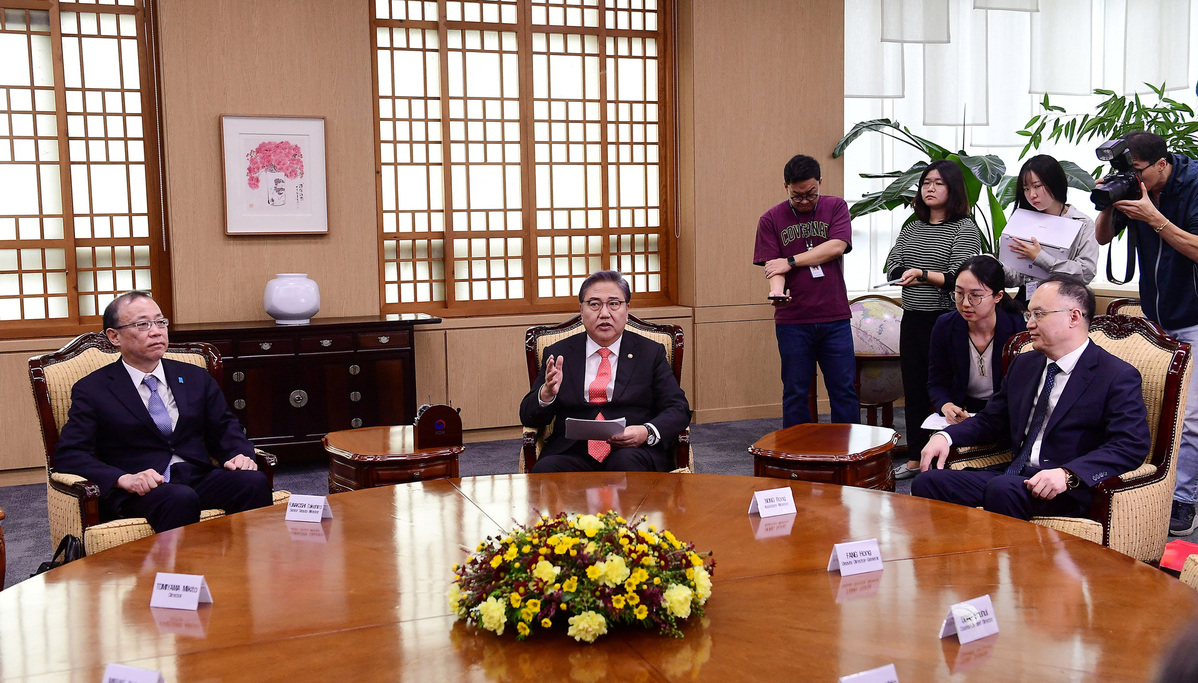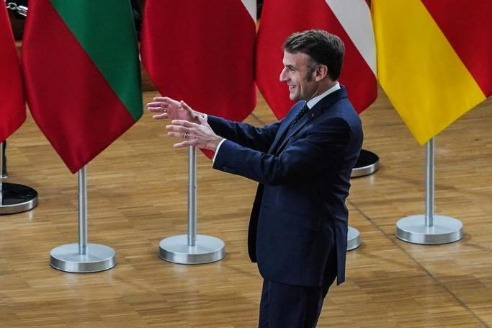Nations discuss restarting meetings


China, Japan and South Korea are in communication on restarting a meeting among their leaders at the earliest convenient time, the Foreign Ministry said on Tuesday.
China's Assistant Foreign Minister Nong Rong, Japan's Senior Deputy Foreign Minister Takehiro Funakoshi and South Korea's Deputy Foreign Minister Chung Byung-won met in Seoul on Tuesday to discuss the resumption of trilateral cooperation.
The trilateral leaders' meeting was first held in 2008. Along with the high-level officials' meeting, which was first held in 2007, and the foreign ministers' meeting, they have become part of the cooperation mechanism among the nations.
However, the meetings have been put on hold since 2019 due to the COVID-19 pandemic and strained relations between South Korea and Japan over a wartime labor dispute.
Foreign Ministry spokesman Wang Wenbin said at the daily briefing that the three neighbors agreed at the high-level officials' meeting to hold the foreign ministers' meeting "in the following several months".
He said the three countries also agreed to strengthen pragmatic cooperation in areas including cultural exchanges, trade, scientific innovation and sustainable development.
According to Wang, South Korean Foreign Minister Park Jin met with the three officials on Monday.
In a statement issued by the South Korean Foreign Ministry, Park stressed that cooperation among the three countries "plays a significant role not only in Northeast Asia but also in the peace, stability and prosperity of the world".
On Tuesday, a plenary meeting of the Central American Parliament approved a special agreement on the acceptance of the National People's Congress of China as a permanent observer.
The approval came three days after the visit to China by the parliament's President Amado Cerrud, during which he met with Zhao Leji, chairman of the NPC Standing Committee.
The parliament in August revoked the permanent observer status of the so-called "legislative yuan" of the Taiwan region.
China highly commends this move, which reflects the Central American Parliament's firm resolve to develop ties with China, said Wang, the spokesman.
It again shows that the one-China principle represents the consensus of the international community and an unstoppable trend of the times, he said.
China stands ready to further develop and consolidate friendly cooperation with the parliament and Central American countries on the basis of one-China principle, he added.
The Central American Parliament is a six-nation parliament that groups Guatemala, El Salvador, Honduras, Nicaragua, the Dominican Republic and Panama, serving as the political institution and parliamentary body of the Central American Integration System.
































